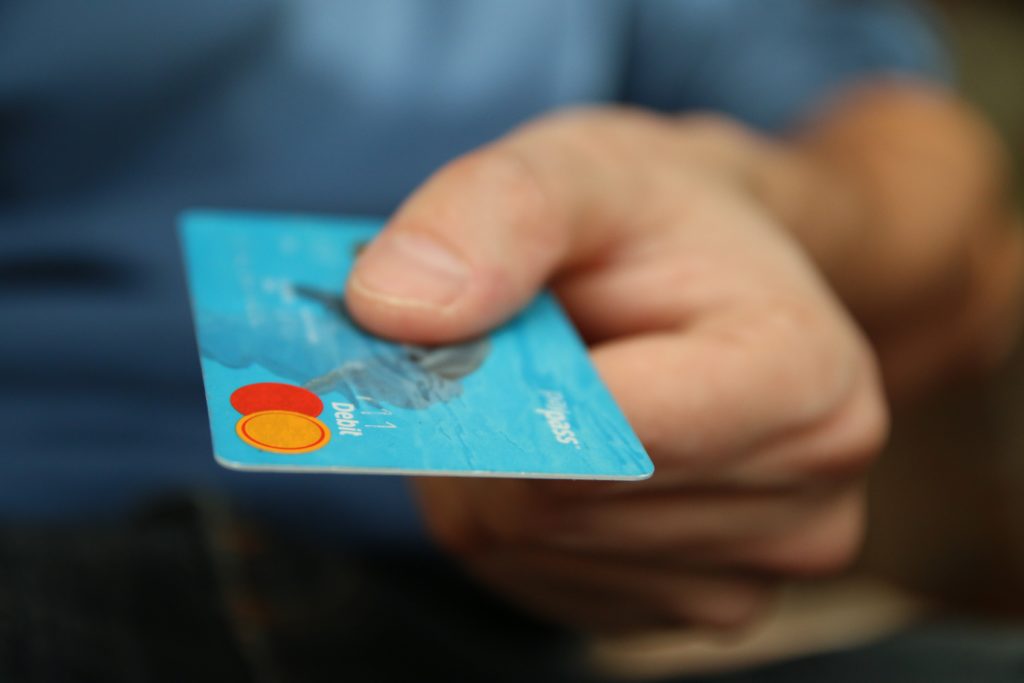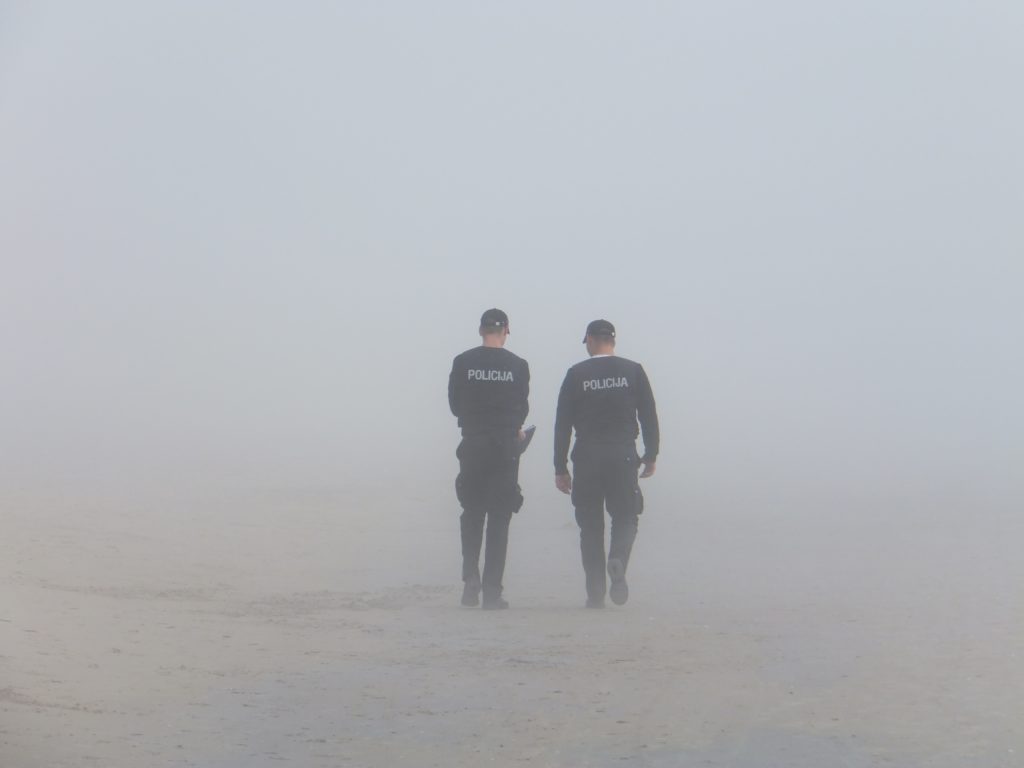When I first started learning French, I remember being so confident in my abilities after learning what seemed like every last conjugation. But then I met a native speaker who was the same age as me. I felt like I had learned nothing! It was even worse trying to watch French movies on Netflix. I could hardly understand a thing because of all the French slang! But French slang isn’t scary, and it can actually be really fun to learn! Keep reading to decode 15 popular French slang words and find out how to use them in your own speech.
Last Updated: 05/31/2022

What’s inside…
15 French Slang Expressions You Need to Know
This is just a taste of some of the most popular French slang, or argot. Of course, the language is always evolving, so we also recommend adding the optional French Slang Pack to your Learn French app. It’ll help you stay up to date on new expressions and commit them to your long-term memory via the app’s Spaced Repetition System. The key is not to sound like you’re reading out of a dictionary. Here are some essential French slang words to make you sound more like a native and less like a novice when you’re speaking to your French friends.
Click the play button to hear this word pronounced:
J’adore cette fête, je kiffe vraiment. | I’m loving this party, I really dig it.
Here’s a more emphatic and youthful way to say like or love. It can also be a noun; someone’s kif is their favorite thing. It shouldn’t be confused with kif-kif (bourricot), which is an informal way to say that there is no difference between two things (like “same difference” in English).
Origins: This one should be left out of the classroom. Kiffer comes from an Arabic word for enjoyment, which also happens to be the word for… opiate: kif.
Click the play button to hear this word pronounced:
Je dois bosser demain. | I have to work tomorrow.
Meaning to work very hard, or to “slave away,” bosser is a very common French slang term. Kiffer and bosser are great expressions to use instead of aimer (to love) and travailler (to work) when you want to add a little emotion to your sentence. Another French slang alternative to travailler is taffer. You also are likely to hear the nouns le boulot and le taf to talk about work.
Origins: Un bosseur is the older form of this word, meaning a hard worker. Today, it’s still a nice compliment to receive!
Listen to how to pronounce these words:
J’ai l’impression de connaître ce mec. | I feel like I know that guy.
This one is so common it almost isn’t slang anymore. There are many words for a mec in English: a dude, a guy, a bloke. In France, we rarely talk about “men” and “women.” Instead we say le mec or la meuf, especially among young people. For example, you might hear: “Mais c’est qui ce mec ?” (Who is this guy?) or “Tu la connais cette meuf ?” (Do you know that girl?).
You can also use these terms to refer to your boyfriend or girlfriend with their respective possessive adjectives: mon mec, ma meuf.
Origins: As common as this word is, mec is a shortening of maquereau, a pimp! Scroll to the end of the article to find out where the word meuf comes from…
Improve your spoken French

Good news: we have a course for that! The Speak French with Confidence MasterClass.
It’s a comprehensive 8-module course designed to help you improve every aspect of your spoken French – fluency, confidence, pronunciation, and more – step by step, and enjoy doing it.
Click the play button for the pronunciation of this word:
Je n’ai pas de bière, mais j’ai assez de pinard pour passer un bon moment. | I don’t have any beer, but I have enough cheap wine to have a good time.
Here’s a word we really need in English (at least I do). Un pinard is a cheap wine, usually red (by the way, do you know all of the colors in French?). Pinard is often associated with soldiers in France, as it was the label on their wine rations during WWI. (Yes, French soldiers actually had wine rations!) Another slang term for cheap wine that you might hear is la piquette.
If you’re more of a beer drinker, instead of une bière, grab une binouze! Now that you know all about French slang terms for drinks, check out our article on how to say cheers and give toasts in French for some important tips on French drinking etiquette!
Click play to hear it pronounced:
Ça fait une heure que je t’attends ! Tu commences vraiment à me saouler à toujours être en retard… | I’ve been waiting for you for an hour! I’m really starting to get fed up with you being late all the time…
Speaking of alcohol… Although technically this word means “to get drunk,” in French slang, saouler can also mean to annoy or frustrate. You may also see it spelled “soûler.”
Click play to listen to this word:
Tu veux acheter de la bouffe ? Je meurs de faim. | Want to get some grub? I’m starving.
Now that we’ve taken care of drinks, let’s tackle food! Don’t be mistaken, la bouffe is not another way to say le bœuf (beef). La bouffe is just any type of food you can shove into your mouth.
Since food is a big part of French culture, we also have lots of slang for it. We talk about bouffe (food) and bouffer (to eat). Okay, these aren’t words you’d use for fine dining, but rather if you’re talking about McDonald’s, for example. Coincidentally, the French word for junk food is la malbouffe.
It can also be a verb: bouffer (to eat).
Literal translation: Bouffer means to stuff your cheeks like a chipmunk! This word has been around in one form or another since the 1300s. Bouffe used to mean oats or another type of grain.
Click here to hear a sentence with this word:
Tu n’as rien mangé de la journée ? Mais tu dois crever la dalle ! | You haven’t eaten all day? You must be starving!
All this talk about food has got me hungry! To talk about hunger, in France we say, avoir la dalle. If you’re really, really hungry, you might even crever la dalle (be dying of hunger, be starving). Avoid saying this to your waiter, though. They might think you’re criticizing them for not bringing your food out fast enough!
Click the play button to hear this word:
Quelle arnaque ! Ce type m’a fait payer 80$ pour une chemise à 50$. | What a rip-off! The guy charged me $80 for a $50 shirt.
If Paris is on your list of places to see, sadly, you should be prepared for this word to come up. It means a “rip-off” or “scam.” That 15€ pint of beer you bought by the Eiffel Tower? Yeah, arnaque. It can also be a verb: arnaquer.
Origins: A long time ago, une arnache was a plain-clothes police officer, or a cop without his uniform– his anorak.
Click the play button to listen:
” … on ne peut pas faire un pas sans rencontrer des fliques!” (1891, “Lutte Amour” by Méténier) | “You can’t go more than a foot without running into a cop!”
Nowadays, you won’t hear the word arnache, but you will hear this slang term. If you’re familiar with US English slang, you might already be familiar with its meaning. Un flic is common French slang for “police,” but if you get pulled over in France you definitely don’t want to refer to the officer this way!
Origin: This word seems to have popped up in crime novels around the turn of the last century, and may be derived from the German word “Flick,” meaning young man. In all its many forms, the idea of fliquer means to narc, spy, or snitch on somebody.
Click play to listen to this word:
Attends, je me suis planté de bus, je te rappelle plus tard. | Hang on, I caught the wrong bus, I’ll call you back later.
This slang term has nothing to do with gardening! When we are learning a language, we make mistakes pretty often, right? Well in French, the next time you mess up you could say, “Je me suis planté.”
Click play to listen to a variation on this phrase:
Je dois fermer ma gueule ?! Mais c’est toi qui es en train de parler ! | You’re telling me to shut up?! You’re the one talking!
Hopefully you will never need to use this phrase, but you will hear it very often during tense movies. It’s a rude way to tell someone to shut up. You can also use the shortened versions “Ta gueule !” and “La ferme !” (which, in this case, doesn’t mean “the farm”!)
There are lots of other common French idioms with gueule, such as:
- gueuler – to yell
- la gueule de bois – a hangover
- Tu te fous de ma gueule ? – Are you serious? Are you messing with me?
- avoir de la gueule – to look good (person or object)
Literal translation: Nearly every animal has a gueule – a muzzle, maw, or simply, mouth!
Click play to hear this word pronounced:
Ce sont mes potes de fac. | They’re my college friends.
If you want to talk about your friends, you could use the word ami, which you probably learned in school. But it’s more common to use this French slang for friend, pote, just as you would use “buddy,” “mate” or “pal” in English. It’s a bit more casual, and unlike copain and copine, if you talk about your pote, no one will make the mistake of thinking the person is more than a friend.
Derivative: you can even make it more familiar and use the term poteau (which happens to also mean “post” or “pole”).
Click the play button to hear this word in a sentence:
Arrête d’agir comme un taré ! | Quit acting like a crazy person!
In plain words, un taré is a madwoman/madman, maniac, or crazy person. Whether it’s a guy yelling on the street, or a psychopath behind the wheel, un taré is usually somebody you should avoid. But you might even lovingly use it to describe your potes. You can also be “taré” if you enjoy extreme sports, like base-jumping!
It can be used to describe men or women; the feminine form is “une tarée.” You can also use it as an adjective, for instance: “Il est taré ce mec.”
Literal translation: A rotten person.
Click play to listen to this phrase:
Excuse moi, je suis à la bourre. J’arrive dans 15 minutes. | Sorry, I’m running late. I’ll be there in 15 minutes.
Let’s say you’re going to get a drink with your friend, but you’re running late! You’ll need to call them to let them know that you’ll be late! You could tell your friend that you are à la bourre, as in the example sentence above.
Be careful not to mix this up with the expression être bourré, which is slang for “drunk.” Your friend, who is waiting for you, might answer: “Viens vite, je t’attends depuis une heure et je suis déjà bourré…” (Hurry up, I’ve been waiting for you for an hour and I’m already drunk…) C’est un vrai taré, ton pote! (He’s a real crazy person, that friend of yours!)
Click the play button to listen to this word pronounced:
Allez c’est bon, je ne vais plus t’attendre, je me casse d’ici ! | Alright, I’m not waiting for you any longer, I’m outta here!
Slang for leaving somewhere is “se casser.” But this is very informal, so be careful! French people especially like to use it when they’re mad, like in the example above. You can also use it to tell someone else to leave, as in: “Casse-toi !” (Get out!)
Not to be confused with other French idioms with casser, like:
- (se) casser la gueule – to beat someone up or hurt oneself
- casser la croûte – to have a snack
- casser les prix – to slash prices
- se casser la tête – rack your brain
- casser les oreilles à quelqu’un – to talk someone’s ear off or to hurt someone’s eardrums with a loud noise
- casser les couilles (vulgar) – to break someone’s balls, to annoy someone.
Well, we’re really à la bourre, so… on se casse! That’s the end of our list. We hope you learned something new! If you want to learn even more French slang…
Watch Cédric’s Video of His Favorite French Slang
Cédric, our French teacher slash language hacker here at MosaLingua, made a video about some of the most common and useful French slang. Some of them are on the list above, but there are a few new ones, too! You can watch his video right here, or on our YouTube channel. He speaks in French throughout the whole video, but there are English subtitles if you need them! Also, feel free to turn the video speed down by clicking the gear icon in the bottom corner.
What do you think, did you kiffé the video? If you did, give it a like and be sure to subscribe to our YouTube channel for more fun videos about language!
Wait a Minute, I Thought “Verlan” Was French Slang
You’re right! “Verlan,” which comes from the word “l’envers” (backwards, opposite), is a special type of French slang. It’s almost more like Pig Latin in English, in that it switches around the syllables in normal French words. By the way, #3 on our list, meuf, is actually verlan for “femme.” Other common verlan you might hear includes: ouf (> fou, crazy), chelou (> louche, shady) chanmé (> méchant, mean) and zarbi (bizarre). And there’s a lot more where that came from. Learn more in Cedric’s article and video all about verlan!
Why You Need to Know Some French Slang
France does have people who will only speak its language in its proper form. Purists, if you will. And it’s good to learn the “correct” way of speaking. Nonetheless, you’re bound to hear tons of French slang when you start interacting with real native speakers (unless perhaps you’re talking to a French teacher) and listening to authentic French content like podcasts and TV shows. French is full of expressions. And many of the more informal ones provide more emphasis than the “official” words you’ll learn in a classroom, where slang gets a bad reputation.
Luckily MosaLingua is here to help you learn words that you might hear 20 times a day, but that you still won’t find in a textbook! By the way, not all French slang is something you really want in your vocabulary. It’s a good idea to research new words you learn, or ask your conversation partner about them before you actively start using them in conversation, to make sure you won’t offend anyone.
Slang in Other Languages
Did these French slang terms make you hungry for more? Check out these articles and find out the latest language trends in Spanish, Italian, German, Portuguese, and English:
- 10 Essential Italian Slang Expressions
- German Slang Words To Sound Like A Native Speaker
- 10 Popular Spanish Slang Words to Sounds More Like a Native Spaniard
- 13 Spanish Slang Words to Speak Like a Latin American
- 13 Portuguese Slang Words to Speak Like a Brazilian
- and 10 Popular American English Slang Words
Thanks for reading, à plus !



















Terrific.
I have been encountering about half of these slang words on Netflix while watching a very drole film in French, with French sub-titles, called Dix Pour Cent.
Merci.
Don,
That’s great! It’s always best to apply what you learn right away, so it’s wonderful that you can identify some of these expressions in the context of a popular TV show. If you haven’t already, check out our article about other French TV series that are great for learners: https://www.mosalingua.com/en/best-french-tv-shows-learn-french/
Best,
Abbe
In France people occasionnally omit the verb in “ferme ta gueule”, some just shout “ta gueule” instead.
It’s sort of an abreviated version, for extremely violent situations. Both are equally vulgar and depreciated though.